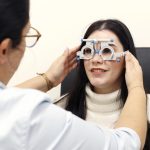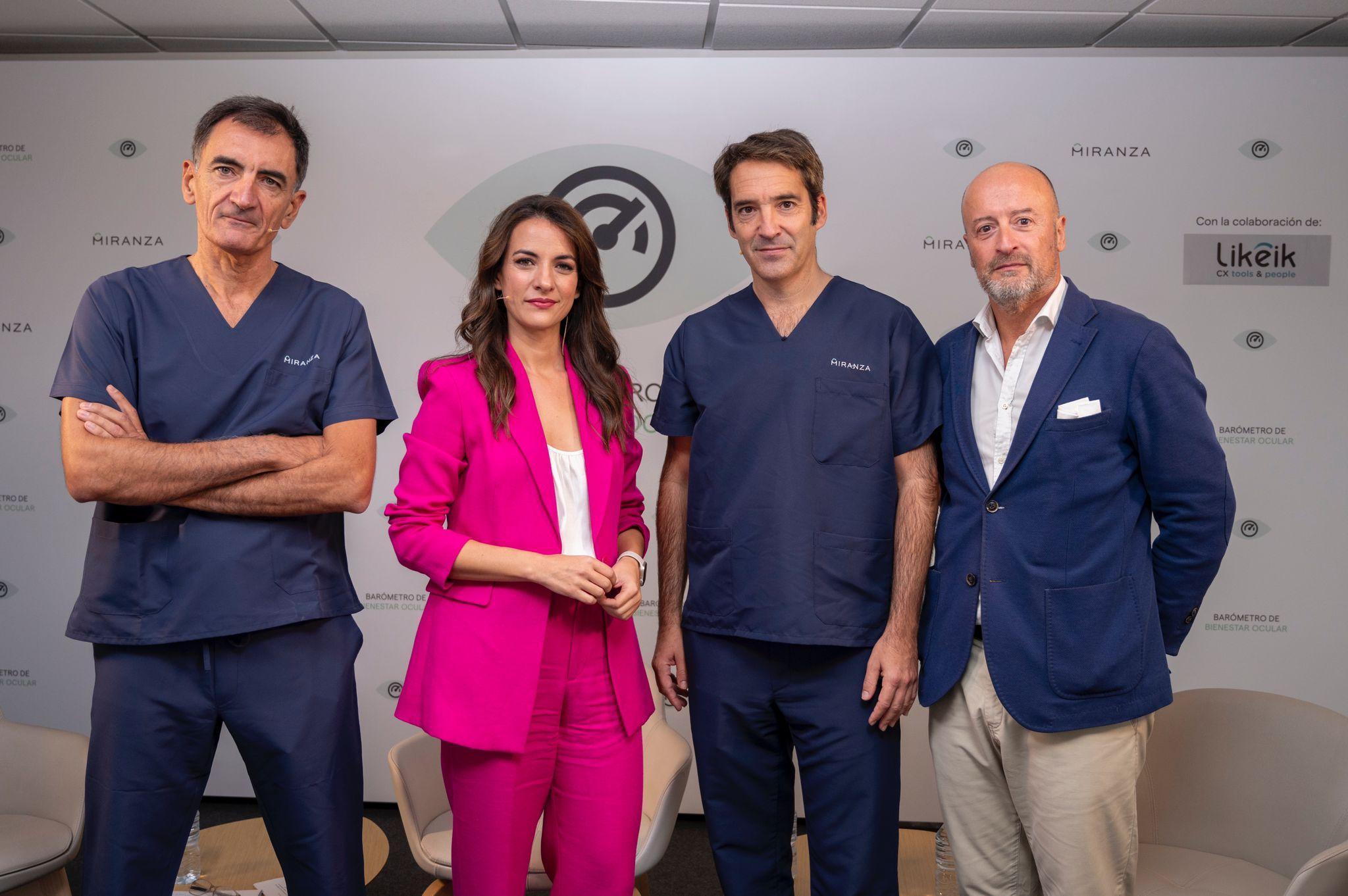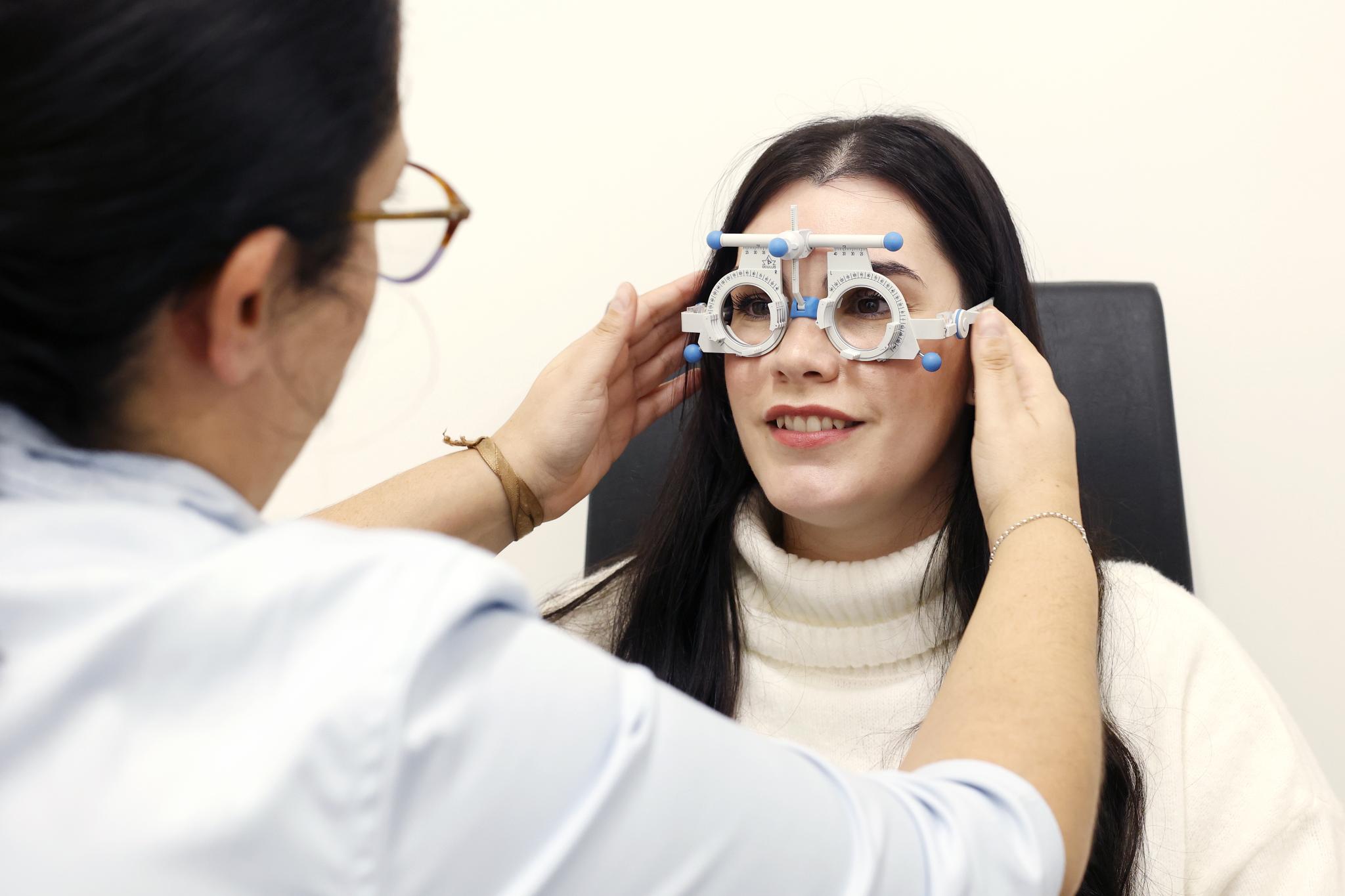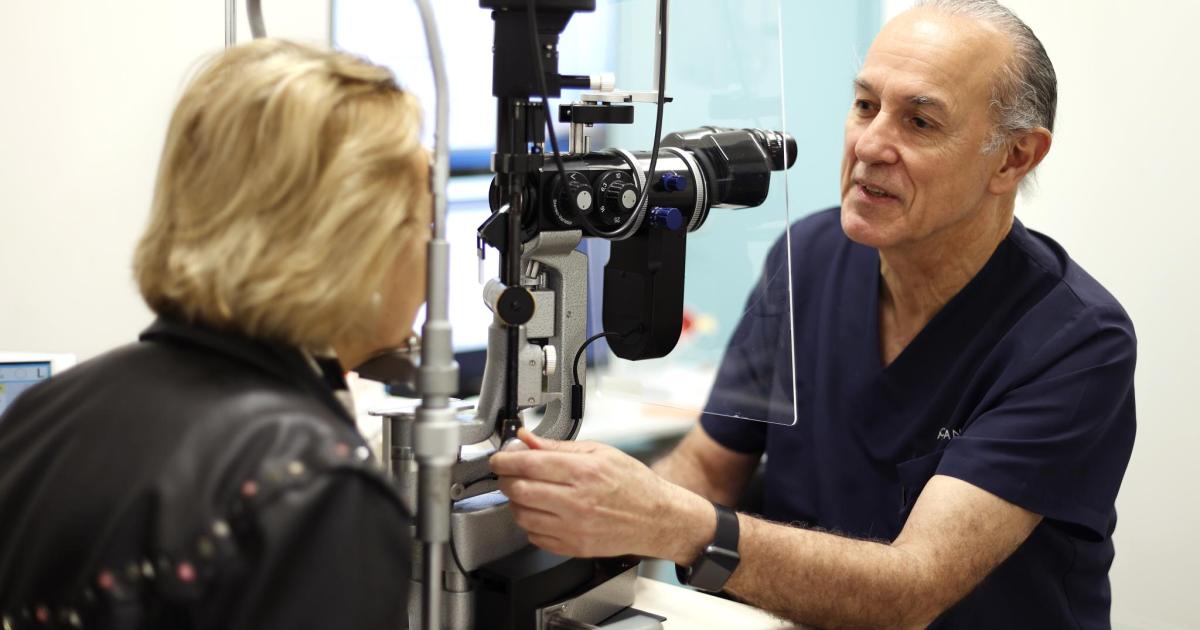

For 9 out of 10 people it is important to take care of their eyesight and 70% believe it is key to enjoying life; However, an unhealthy lifestyle and lack of awareness about the importance of preventing eye pathologies through good habits and periodic check-ups may be affecting the visual health of the population. This is reflected in the fourth edition of the Barometer of Ocular Well-being in the Spanish Population, promoted by Miranza, a leading group in ophthalmology, and presented to coincide with World Vision Day, which this year was celebrated on October 10.
Among the most relevant conclusions of the study, based on a survey of a thousand people over 25 years of age, it stands out that the ocular state of the Spaniards barely get a fair passwith a score of 5.20 out of 10, practically the same grade as last year (5.22), although it fails in those surveyed over 41 years of age, with a 4.87 in the group between 41 and 64 years of age and a 4.91, in those over 61.

Despite these poor ratings, 72% of those surveyed perceive your eye health as ‘reasonable’; although the percentage of people who rate it as ‘good’ or ‘excellent’ is significantly lower (35%). It is striking that this percentage is much lower than that of people who rate their general health as good or excellent (58%), which is clearly a weak point in the health of Spaniards.
1 in 3 Spaniards has eye symptoms
According to data from the Barometer, at least 1 in 3 Spaniards has symptoms of visual problems, the most frequent being blurred vision (34.5%), sensitivity to light (33.6%), the sensation of loss of vision (33.3%), irritation, itching or stinging (31 %) and dry eyes (30.1%).
Likewise, the myopia climbs to the first position in the ranking of vision problems, surpassing, with 37%, astigmatism (35%) and presbyopia (32%), which appeared above myopia in previous years.
Based on the results of the barometer, Miranza specialists offer their recommendations to promote the ocular well-being of the population. According to the Dr. Emeterio Orduñamedical director of Miranza Mallorca“there is no doubt that the habits incorporated into the daily routine influence ocular well-being, especially if one takes into account the increase in activities that tax the eyesight, such as the use of screens, linked to an increasingly lifestyle. increasingly sedentary.

In fact, the results of this report confirm that 55% of Spaniards lead a not very active or sedentary lifestylewhich explains that this same percentage of respondents indicate carrying out activities that require use of a close viewlike reading on your cell phone or using the computer.
«The prolonged use of screens today, added to other factors such as the little time we spend outdoors, is a significant threat to ocular well-being. Not only does it cause an increase in discomfort associated with dry eyes or visual fatigue, but it also contributes to the increasing number of cases of myopia (poor distance vision). Over the past 30 years, myopia has increased considerably around the world, becoming a global pandemic that is expected to affect half of the population by 2050 if no preventive measures are taken now. », says the ophthalmologist.
Healthy living: attention to sedentary lifestyle and stress
Experts recognize the long path that still needs to be taken to achieve optimal ocular well-being for Spaniards, with the main problem being the lack of awareness about the importance of leading a healthy lifestyle and the impact it has on our eyes. Only 49% of those surveyed perceive an association between eye health and lifestyle habitsdespite the already demonstrated relationship that exists between the state of our eyes and sleep, tobacco and alcohol, diet or sports. On the other hand, more than half believe that factors that do not depend on oneself, such as heredity, pollution or climate, can affect eye health, which is also true.
Another factor that impacts ocular health is stress, an emotional state that causes metabolic changes and can cause visual alterations such as central serous chorioretinopathy, a pathology that affects the retina. In relation to this condition, the Miranza Barometer points out that people who admit to suffering from stress (more than half of those surveyed), They also rated their ocular well-being worse.
Prevention, a pending subject
According to the results reflected in the report, 8 out of 10 respondents affirm that you should have your eyes checked annuallyalthough, later, The average number of eye checkups does not reach an annual ophthalmological visit.
Going to the ophthalmologist once a year is the average frequency that specialists recommend, especially in childhood and after the age of 40, when the prevalence of many eye pathologies begins to increase due to age, such as AMD or glaucoma, as well as natural functional problems of aging, such as presbyopia or eyestrain and cataracts.
In fact, the 80% of respondents between 41 and 64 years old, when presbyopia and cataracts begin to appearrespectively, affirm that they are concerned about their eyesight, and are collectively the most aware of the need to take care of it (93%), while 85% of those surveyed agree that ‘sight loss occurs with age.’
Regarding the impact of poor vision on everyday lifehalf of the sample agrees that vision affects the ability to drive and work and, to a lesser extent, but in a non-negligible percentage, recognizes that it negatively impacts their ability to socialize (25%) and even ‘to my desire to leave home’ (21%). Likewise, there is a part of the population that associates their vision problems with a feeling of insecurity (25%), frustration, dependence and even shame (10%), which strengthens links between problems that affect vision and depressive processes.
Resignation? We have more possibilities than we think
Despite all this, the study shows that more than half of Spaniards consider that they do not vision loss can be prevented (only 4 out of ten consider that it is). Perhaps for this reason, preventive measures, which include both healthy lifestyle habits and annual ophthalmological examinations, are not advancing to ensure optimal ocular well-being in the Spanish population.
Likewise, the survey shows the low rate of treatment to reverse or stop vision problems, which could be related to little knowledge or lack of confidence in the existence of effective surgeries, drugs and technology to improve our ocular health or well-being and, therefore, our quality of life. In this sense, about half of those surveyed with some eye problem, mainly refractive errors or glaucomasays he has not received treatment. «Many patients resign themselves to living with discomfort or pathologies and, in many cases, they are unaware that we can treat them effectively, either in consultation or surgically, thanks to the great advances and new techniques that are increasingly breaking into the field of medicine. ophthalmology,” explains Dr. Emeterio Orduña. In serious and chronic pathologies, such as glaucoma, it is especially important to act, since it causes gradual and irreversible loss of vision, warns the Miranza Mallorca ophthalmologist.
Advances to free yourself from glasses and treat other eye problems
Regarding the correction of refractive errors, the 72% of the participants in the study declare they wear glasses permanently or occasionallywhile another 17% say they use contact lenses. All of them have a worse perception of their eye health than those who do not use optical correction. Furthermore, dependence on these optical corrections is perceived as an annoyance or discomfort by 36% of glasses wearers and 42% of contact lens wearers.
In this sense, “refractive surgery for myopia, hyperopia or astigmatism and lens surgery for presbyopia or eyestrain are alternatives that we can offer and which more and more patients are opting for, due to their effective results, safety and ease of use.” recovery, as well as high customization possibilities. Today, we carry out very complete preoperative studies and we have a wide range of techniques, which allow us to offer solutions to patients who years ago could not undergo surgery due to having too many diopters or certain ocular conditions. Furthermore, with current lens surgery, we can correct any other previous refractive defect of the patient, in addition to presbyopia or cataract, practically eliminating dependence on glasses at any distance,” says Dr. Emeterio Orduña.
The Miranza ophthalmologist concludes by emphasizing “the importance of raising awareness among citizens about the need for periodically assess your eye health to obtain an early diagnosis and treatment that prevents or helps stop the development of any pathology that may reduce the quality of vision and with it the quality of life.
